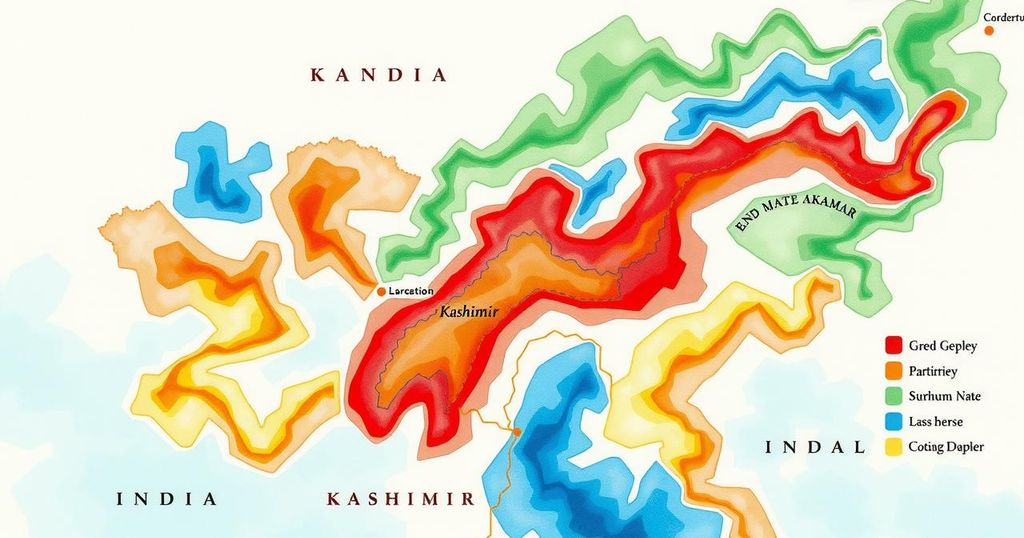EAM Dr. S. Jaishankar asserts that the Kashmir resolution depends on Pakistan returning the illegally occupied region. He discusses India’s alignment with the US under a multipolar world, the Quad alliance, and the necessity for a bilateral trade agreement. He comments on the dollar’s role in global stability and refutes a unified BRICS stance against the dollar.
India’s External Affairs Minister (EAM) Dr. S. Jaishankar recently addressed the Kashmir issue, emphasizing that its resolution hinges on Pakistan returning the “stolen part” of the region currently under illegal occupation. He stated that following the revocation of Article 370, the conflict in Kashmir is largely resolved, and only the return of this part remains unaddressed.
Speaking at Chatham House in London, Dr. Jaishankar also discussed the United States’ shifting geopolitical landscape, noting that the transition towards a multipolar world aligns with India’s interests. He highlighted the importance of the Quad alliance—comprising India, the US, Australia, and Japan—as a successful collaborative effort in this context, advocating a cooperative model where all members contribute fairly.
On trade relations, Dr. Jaishankar confirmed discussions between Prime Minister Modi and former President Trump regarding a bilateral trade agreement, currently being advanced by Commerce Minister Piyush Goyal in Washington. He pointed out the significance of such agreements in managing tariffs and enhancing trade balance.
Additionally, Dr. Jaishankar addressed India’s stance on the dominance of the US dollar in the global economy. He conveyed that India does not seek to replace the dollar, as its stability as a reserve currency is essential for international economic resilience. Furthermore, he dismissed the perception of a united BRICS position against the dollar, explaining that member countries maintain diverse viewpoints, particularly following recent expansions within the group.
Dr. Jaishankar’s statements underline India’s perspective on both the Kashmir conflict and international economic relations, emphasizing the need for resolution through the return of occupied Kashmir. The focus on a bilateral trade agreement with the US and the complex dynamics within BRICS and currency discussions reflect India’s strategic positioning in the global arena.
Original Source: www.indianewsnetwork.com






